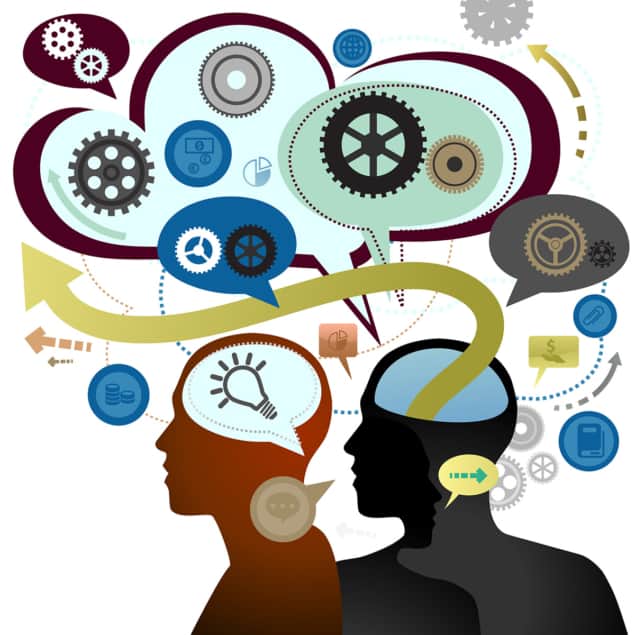
In November 2020 the Institute of Physics (IOP) launched a new podcast, Looking Glass, to coincide with its 100th anniversary. Series 1: Society has six episodes, in which host Angela Saini talks to expert guests about the contributions and responsibilities of physics, and physicists, in society as a whole, particularly in relation to the challenges of today’s world.
I listened to this first series over the course of a week at the start of 2021. The UK had just entered the third national lockdown, the weather was grim and to be honest the future didn’t look so bright either. Did I want to hear about future challenges, when the current one seemed challenging enough? Not really. But listening to each episode got me thinking about the world wider than my own. The rich conversations between guests showcased a diversity of thought, from experts in multiple fields, from diverse backgrounds and ethnicities.
Some themes are expected, for example the huge challenge of the climate crisis, or exploring the ethics of new technologies in medicine, robotics and artificial intelligence (AI). Other episodes are surprising, such as the discussions around who has a platform (along with what happens when it is taken away) and the value of non-western knowledge systems. The discussions connected the dots around how physics intersects with these seemingly unrelated aspects of society.
Responsibility of physicists for their discoveries
Questions of the responsibility of physicists to society are of course not new. When discoveries and technologies can have an impact as large as an atomic bomb, then questions of accountability are not far behind. In episode 6 “A Blueprint for the Future” former IOP president Dame Frances Saunders sums up the quest for discovery for discovery’s sake alone: “Sometimes you (physicists) do just need to push a frontier, open the door to see what is behind it… I think the importance is how rapidly you respond to what you find on the other side of the door.” So, is responsibility just a matter of foresight and contingency planning? With good planning, is any research justified?
There is of course the impact of new technologies on the wider world to consider, and the intent behind the research. Along with exciting benefits, such as machine learning to detect cancer or solar-based technologies for water treatment, there are often unintended consequences of a new discovery. Questions of who gets access to new technologies are highlighted in episode 3 “Healthcare and Inequality”, and whether this propagates societal injustices. Or that even with good intentions our unconscious biases are literally coded into new technologies as discussed in episode 5 “The Ethics of Big Data and AI”.
So how do we ensure that the benefits of any new technology are equitable? The first thing to stress is that equity is not the same as equality; it is based on the needs of the recipients rather than everyone receiving an equal share. This is at the heart of many social justice issues. Angela Saini puts it nicely: “Here we have an unequal society; how do we even it up without some people feeling aggrieved about it?” One option explored in episode 3 is to create solutions specifically for those that are often overlooked. Of course, those solutions need to solve problems that actually exist and be accessible to those that would benefit from them.
Ivan Beckley, the founder of Suvera health, advocates for this approach with the principles behind his start-up, centred around the “accessibility, affordability and effectiveness (of care)” for the end user. Perhaps these principles are a good starting point for technologies developed in the wider physics community as well. If they were embedded into the research, development and delivery processes, might they help bring the needs of the recipients into the foreground? This is especially important for Sophie Martin from the Blackett Lab Family, who concludes in episode 6 that the physics community must put the impact on society at the heart of the push for knowledge and communicate that impact clearly.
How should we communicate what we discover?
The way that scientists communicate is a key theme through the series. Within the first minutes of episode 1 “The Climate Crisis”, the topic of communicating data and climate change scepticism is raised. How can climate researchers communicate convincingly that there is a problem, and ensure that they are listened to? Angela Saini empathizes with the frustration of those scientists who have been talking about the issue for decades. One way forward might be for scientists to collaborate with activists and campaigners when there is an intersection with their work.
Looking Glass credits Greta Thunberg and the climate strikers in raising awareness and, as a campaigner herself, Fatima-Zahra Ibrahim from the Green New Deal UK comments “There is all this great (scientific) work happening, but that great work doesn’t go anywhere unless it lives in our homes, unless we can understand and communicate it ourselves.” Dr Emily Shuckburgh, director of Cambridge Zero thinks that we can go even further; if we really want to build trust with the public, we must build open and transparent processes, and communicate those as well.
The different skillsets involved in making a discovery and talking about it effectively are highlighted again in episode 3. When Professor Kevin McGuigan from the Royal College of Surgeons in Dublin, is asked about how he promotes the benefits of clean water technologies to those that might use them, his answer is wry. “The science is the easy part! …[the problem is] trying to help communities realise that there is a problem, and the technology can help address that problem.” He goes on to say that both technology and communication must be culturally relevant, sensitive and non-patronising to the people who will be using it to have the greatest possible benefit.
Science is moving increasingly into the public eye; even the government is “following the science” with an almost religious fervour. If honest, open and effective communication with the public doesn’t become embedded within the scientific community do we risk being “othered” – put on a pedestal or used as a scapegoat for the consequences of policy decisions? To avoid this, physicists need to be able to communicate in the way society does.
Currently, this seems to be through social media, with all the associated opportunity and risk. The echo chamber of a place like Twitter is discussed in episode 2 “Power, Privilege and Cancel Culture” where Brenda Trenowden, from PwC UK and global co-chair of the 30% Club, states that “debate can be shut down by the loudest voices”. Regardless of whether those voices are assenting or dissenting, both physicists and organizations like the IOP need to know how to respond appropriately and engage in true dialogue online.
The final piece of the puzzle is raised in episode 5, when the discussion turns to the balance, or imbalances, of power between organizations and individuals. Shiv Malik, former Guardian investigative journalist and head of growth at Streamr, believes that those with less power in a relationship become open to manipulation, especially by large tech companies like Twitter and Facebook. He says “There is a huge asymmetry of power, you have thousands of developers versus me as an individual… I am never going to win.” And this imbalance of power can lead to the spread of misinformation, pseudoscience and mistrust. The importance of trust is central to several episodes. How can we expect anyone to act against climate change if they don’t trust the information telling them it is real? How can we improve patient outcomes if medical technologies aren’t trusted?
What makes and should make a physicist “successful”?
In episode 6, Sophie Martin comments that the current measures within the academic community for what makes a physicist successful are very internal. They might include how many papers someone has published, how prominently they are listed as an author, and whether the research has followed scientific best practice. These methods of recognition and reward only preserve the status quo, rather than making systemic and sustainable change, but Looking Glass sheds some light on what a better definition of a successful physicist might be.
As well as enriching our physics community, including a diversity of thought, experience, and perspective brings tangible benefits too. Episode 4 “Who’s At The Table” addresses the benefits to our western scientific community that holistic knowledge and decision making could bring. Carolina Behe, the Indigenous knowledge/science adviser for the Inuit Circumpolar Council Alaska thinks that when the focus of scientific research involves eliminating variables, this surely must lead to siloed thinking as well. True diversity of thought comes not just from respecting the cultural knowledge of those who physicists work alongside, but also from accepting and not “translating” it into the western canon.
The second important point is that when invited into a community, these diverse voices are given equal weight at the table. In episode 2, Brenda Trenowden says that she would much rather talk about inclusion and diversity “I&D rather than D&I” because too many organizations recruit diverse teams and yet there’s no real change because those diverse teams aren’t truly included, and the dominant culture within an organization hasn’t been addressed. When asked how to ensure that diverse voices are heard rather than “tokenized” Frances Saunders says that she hates “the thought that I might be here because of my gender, rather than because I have something useful to say”.
Sophie Martin brings her own experiences as a member of the Blackett Lab family, stressing the importance of representation and connection between those in underrepresented communities. She also says that organizations looking to improve the representation of groups should recognise that there is a burden to existing as a minority in any community, an additional weight that their peers don’t carry whenever they put themselves forward. Carolina Behe adds to this in episode 4, when she discusses her experiences of being invited to negotiation meetings and ending up thinking “Was I too loud? They reacted to me so negatively… everybody else at the table is treating those negotiations differently than if we were all equitable.” If even experts invited to discussions are marginalized, there is definitely still work to be done.
The second series of Looking Glass is coming soon, presented by podcaster, author and journalist Gemma Milne. Find out more at iop.org/lookingglass



